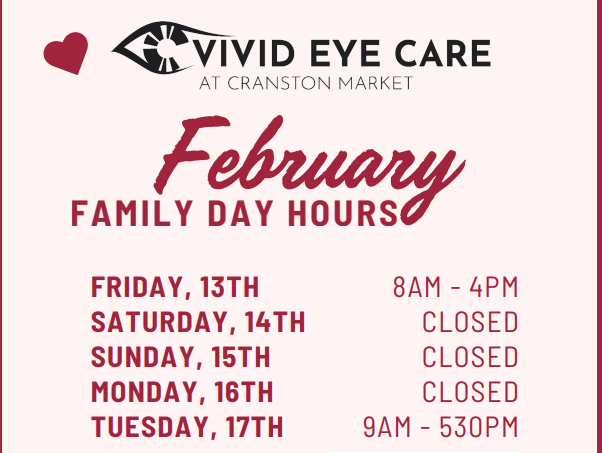One of the most significant roles for a parent is keeping their child safe from harm, and helping them grow and develop healthily. But how much do you know about protecting your little one’s eyes?
Children’s visual health is an important piece of their development, especially when they hit their school years. Roughly 80% of what kids learn in the classroom is presented visually.
Making sure your child has up-to-date prescription lenses if they need them is a critical piece of their eye care puzzle. Even if they don’t need glasses, having their eyes checked regularly for signs of disease is crucial for maintaining good eye health. Prevention is the best medicine, so follow these tips to help keep your child’s eyes healthy.
1. Eat an Eye-Friendly Diet
Most of us have heard that eating carrots improves your eyesight, and we have good news—that’s true, to an extent. Your nutrition has a direct impact on your eye health.
In the case of carrots, the beta carotene in carrots helps our body make vitamin A, one of many vitamins needed for good eye health. Vitamin and nutrients crucial to the eyes include:
- Zinc
- Fatty acids
- Vitamin E
- Vitamin C
A healthy diet can help protect the eyes, so be sure to serve meals and snacks that include foods like:
- Fruits & vegetables
- Leafy greens
- Beans
- Fish
- Eggs
- Avocados
- Almonds
2. Emphasize Hydration
It’s no secret that we need to drink plenty of water to keep up our health. Since the human body is 50% water, we need to stay hydrated to function properly. This is just as true of our eyes.
If we’re dehydrated, we risk underproducing tears, potentially leading to symptoms of dry eye or eye strain. To combat this, make drinking water a regular part of your daily routine. Carry reusable water bottles with you wherever you go. You can even make it a game to see who in the family can keep up with their water intake goals.
3. Play Outdoors
Making sure your child has lots of time to play outside can also help their eyes. Myopia, or nearsightedness, is on the rise in children all over Canada. Studies suggest that there may be a link between increasing rates of myopia and an increase in activities requiring close-up vision—screen use including tablets, video games, and tv, as well as increased study time.
Allowing kids to play outdoors gives their eyes a break from near work and lets them take in more natural light.
4. Wear Sunglasses with Complete Ultraviolet Protection
Sunglasses look fabulous, of course, and are extra cute on your child, but they also play a big part in eye protection.
The sun’s UV rays can damage the eyes and increase the risk of long term eye problems, including:
With sunglasses designed to suit your child’s face, your little one will stay well protected and can build the habit of wearing sunglasses when outdoors. Don’t forget sunscreen for any exposed skin, too!

5. Wear Eye Protection During Outdoor Activities
Sun protection when outdoors is important, but so is protective eyewear. Eye injuries can occur during sports or leisure activities, and roughly 90% of these injuries could be prevented with proper eye protection.
Find proper eye protection for activities including:
- Swimming
- Tennis
- Hockey
- Lacrosse
- Skiing
6. Make Sure Their Eyes Stay Clean
We can’t emphasize the importance of eye hygiene enough. Teach your children the importance of using clean washcloths and towels and keeping debris from their eyes.
If your child does have something come into contact with their eyes, show them how to flush the eye with clean running water instead of rubbing it.
Improper eye hygiene can exacerbate dry eye disease and increase the risk of pink eye (also called conjunctivitis.)
If your older children and teens are trying out makeup and skincare products for the first time, talk to them about eye hygiene guidelines, such as:
- Not sharing eye products
- Keeping products out of eyes
- Regularly washing makeup applicators and brushes
- Removing eye makeup every day using gentle, eye-friendly products
7. Avoid Rubbing Your Eyes
Rubbing the eyes can offer a few moments of relief but can cause long-term problems. One of the cardinal rules of ocular first aid is to avoid rubbing the eye, as it can cause any foreign objects to scratch the eye or drive debris further in.
Excessive eye rubbing has also been linked to keratoconus, a condition where the eye’s cornea thins and becomes cone-shaped, which can lead to vision problems and difficulty wearing contact lenses.
8. Give Their Eyes a Break
Spending long hours looking at a screen or reading can cause digital eye strain. Between schoolwork and leisure activities like video games, tv, or using a cell phone, kids are also susceptible to symptoms like blurred vision, headaches, and difficulty focusing.
Teaching your child to be mindful about their vision and eye health, including when to give their eyes a break, can lead to better eye health outcomes. Remind them to take breaks while studying or using screens. Suggest a family activity—even walking the dog or helping cook a meal can give their eyes a rest from intense focus.
9. Make Sure They Rest
Getting enough rest is necessary for all of us, including our kids. Taking breaks for screens and keeping a routine sleep schedule can help your children’s eyes function at their best.
Resting the eyes can also help combat dry eye and digital eye strain. To help ensure your child gets a full night’s rest to the benefit of their health and their eyes, build a structure around their screen time use and sleep, such as:
- Make their bed a screen-free zone
- Stop screen use a few hours before bed
- Don’t keep any digital devices in the bedroom, especially past bedtime
- Keep their room a dark, calm environment to promote better sleep
10. Get a Comprehensive Eye Exam
Last on our list, and most definitely not least—get your child’s eyes examined regularly by their optometrist. Routine eye exams can catch health problems, monitor for eye diseases, and help keep their vision sharp.
One of the best ways to encourage healthy behaviours in your children? Model them yourself. Make eye care a family affair— call Vivid Eye Care to book eye exams for everyone.






















